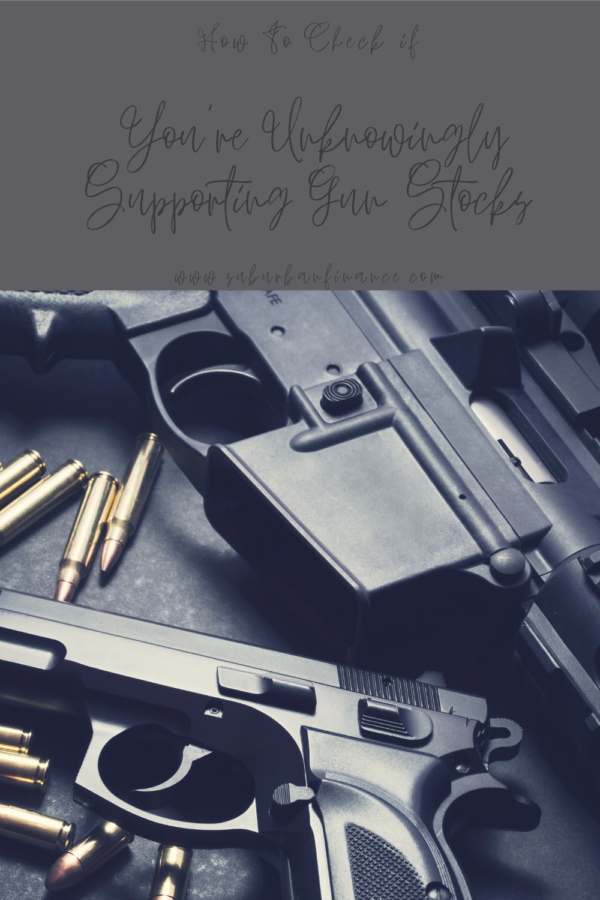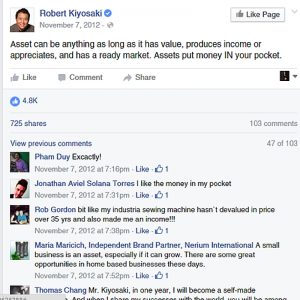There’s no doubt that gun violence is a huge problem in the United States. In the wake of so many mass shootings, people are looking for ways to reduce gun violence and make our communities safer.
Unfortunately, one way that many people are inadvertently supporting gun companies is by buying stocks in them without realizing it.
Here’s how to check if you’re unknowingly supporting gun stocks and what you can do about it.
1. What Are Gun Stocks and Why Should You Care About Them?
Gun stocks are stocks that are associated with gun companies. These can include manufacturers, retailers, and even ammunition makers. When you buy these stocks, you’re financially supporting gun companies and their businesses.
There has been a lot of public pressure on institutions to divest from gun stocks in recent years. For example, after the mass shooting at Sandy Hook Elementary School in 2012, several major investment firms pulled their investments in gun stocks. And after the mass shooting in Parkland, Florida, there was a significant drop in the value of gun stocks.
So if you’re someone who wants to do something about gun violence, one way you can take action is by ensuring that your money is not going to support gun companies.
Unfortunately, it’s not always easy to avoid investing in gun stocks. That’s because many people invest in index funds, which track major stock market indexes like the S&P 500. And since the S&P 500 includes a number of gun stocks, you may be unknowingly supporting gun companies if you’re invested in an index fund.
Luckily, there are a few ways to check if your investments are supporting gun stocks.
2. How To Check if You’re Unknowingly Supporting Gun Stocks
There are a few ways to check if your investments are supporting gun stocks.
One way is to look at the fund’s holdings. This information should be readily available on the fund’s website. If you see that the fund holds shares in a gun company, then you know that your money is going towards supporting that company.
Another way to check is to look at the fund’s investment objectives. Many funds will explicitly state whether or not they invest in gun stocks. For example, the Vanguard FTSE Social Index Fund states that it excludes companies involved in “controversial activities,” which include firearms and ammunition manufacturing.
If you’re still unsure, you can always contact the fund’s customer service and ask whether or not they hold any gun stocks.
Once you know which of your investments are supporting gun companies, you can take action to divest from them if you so choose. There are a number of funds that specifically exclude gun stocks, so you can switch to one of those if you want to avoid investing in gun companies.
3. What To Do if You Find Out That You Are Invested in Gun Stocks
If you find out that you are invested in gun stocks, you have a few options.
One option is to sell your shares and invest elsewhere. This is the most straightforward way to stop supporting gun companies with your money. If you want options, here is a list of companies that pay good dividends. There are a ton in the non-firearm consumer cyclicals and manufacturing sectors that you might be interested in.
Another option is to hold onto your shares and try to engage with the company. For example, you could write to the company’s management and express your concerns about their involvement in the gun industry. You could also try to vote with your shares at shareholder meetings.
Of course, you can also choose to do nothing and continue to hold onto your gun stocks. It’s up to you to decide what is best for your situation.
No matter what you decide to do, it’s important to be aware of the potential risks involved with investing in gun stocks. Gun companies are often volatile and their stock prices can fluctuate wildly. So if you do choose to invest in them, make sure you’re comfortable with the risks before doing so.
4. Ways To Take Action Against Gun Violence
There are a number of ways to take action against gun violence. One way is to ensure that your money is not going to support gun companies.
Join or donate to organizations working to end gun violence.
You can also choose to support businesses that are taking a stand against gun violence.
For example, a number of companies have cut ties with the NRA in recent years. So if you’re looking to support businesses that are taking a stand against gun violence, make sure to check out their policies before doing so.
5. Why It’s Important To Take a Stand Against Gun Violence?
Gun violence is a serious problem in the United States. Every year, thousands of people are injured and killed by guns.
By taking a stand against gun violence, you can help make a difference. Even if it’s something as simple as ensuring that your money isn’t going to support gun companies, that’s one less gun company that can profit from violence.
And if we all take a stand against gun violence, collectively we can make a real difference. So if you’re concerned about gun violence and want to do something about it, make sure to check out the ways you can take action.
Together, we can make a difference.
Did you find out that you were unknowingly supporting gun stocks? What action did you take? Let us know in the comments below.
Read More:
Finding the Best Deal for Our TV Bundle Package
You May Be Priced Out Of The Suburbs – What You Need to Know
Is It Worth Going into Business for Yourself?
Tamila McDonald has worked as a Financial Advisor for the military for past 13 years. She has taught Personal Financial classes on every subject from credit, to life insurance, as well as all other aspects of financial management. Mrs. McDonald is an AFCPE Accredited Financial Counselor and has helped her clients to meet their short-term and long-term financial goals.


